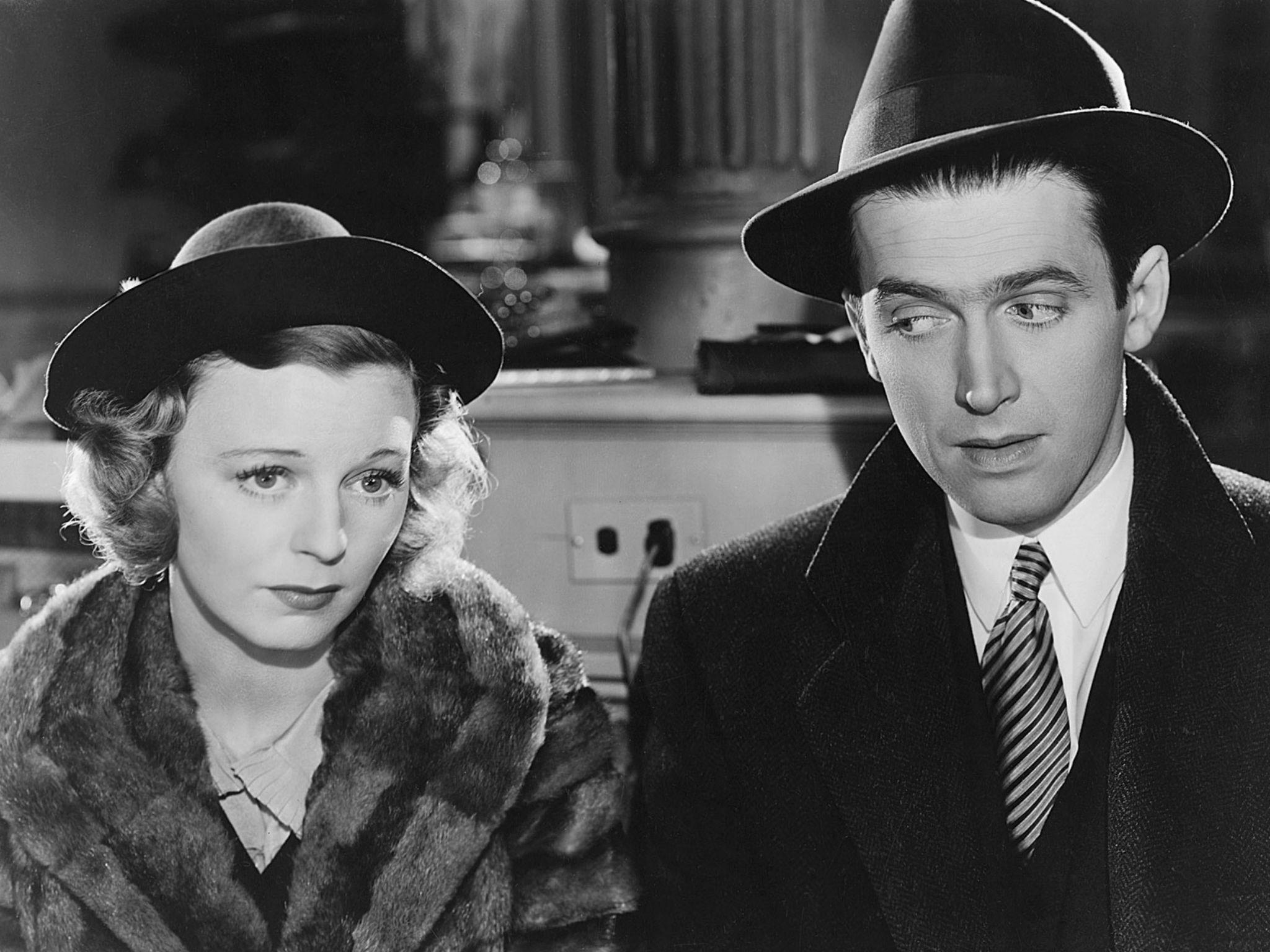my favorite movies of 1940:
(1) Rebecca
(3) The Bank Dick
(4) The Shop Around The Corner
favorite of 1940:
Rebecca (Joan Fontaine, Laurence Olivier, Judith Anderson, George Sanders. Directed by Alfred Hitchcock.)The title character is named over and over, but never seen. The main character (played by Joan Fontaine, on the left in the above photo) is never named. The most memorable character (played by Judith Anderson, on the right in the photo) is seen for less than 20 minutes. And watching this Gothic, romantic suspense movie makes me want to rewatch it from the beginning, which is really the end.
Rebecca was Hitchcock’s first American movie, and it’s my favorite movie of all time. I wrote these in-depth notes on the movie, plus my reactions to the subtly brilliant orchestral score by Franz Waxman. (I’ve put a spoiler alert on that whole post because it explores the movie from beginning to end.)
Here’s Mia Tiffany reacting to seeing the movie for the first time (with spoilers, of course):
Rebecca is a movie about many things:
• It’s about wealth. A year before Citizen Kane (my favorite movie of 1941), Rebecca challenged the idea that getting rich is the path to happiness.
• It’s about mental health. Joan Fontaine’s character has social anxiety and imposter syndrome. Laurence Olivier’s character has depression (“Happiness is something I know nothing about”) and a temper problem. Judith Anderson’s character … well, just watch the movie.
• It’s about sexual orientation. A woman’s consuming love for another woman could not be presented as explicitly romantic or sexual in 1940, but Rebecca is now seen as a pioneering example of Hollywood’s depiction of homosexuality, as noted in a 1995 documentary on that subject, The Celluloid Closet.
• It’s about gender. My notes on the movie give some examples of Laurence Olivier’s controlling and infantilizing attitude toward his wife in Rebecca. The movie passes the “Bechdel” test many times over. It’s based on a novel by a woman, Daphne du Maurier, and the screenplay was co-written by a woman, Joan Harrison, who got her start as Hitchcock’s protege and has been getting more recognition lately as an important writer and producer of suspense, noir, and other movies — sometimes credited and sometimes not (though she was credited for Rebecca).
Stream Rebecca on Filmzie (free with ads). This movie is otherwise hard to find streaming, so I can’t recommend the Criterion blu-ray (or DVD) highly enough. The double disc is loaded with extras, including an excellent commentary track, videos of auditions for Joan Fontaine’s part (by Fontaine, Vivien Leigh, and others), reactions from test audiences at the time, etc.
As I talk about in my notes on the movie, there is some humor to Rebecca even though it’s not a comedy. For more humor to lighten up this dark movie, here’s a dead-on parody prequel (I especially laughed at the impersonation of Laurence Olivier):
2nd favorite of 1940:
The Great Dictator(Charlie Chaplin, Paulette Goddard, Jack Oakie. Directed by Chaplin.) Ebert gives this introduction to The Great Dictator (but don’t read his full review unless you’ve seen that movie and City Lights):In 1938, the world’s most famous movie star began to prepare a film about the monster of the 20th century. Charlie Chaplin looked a little like Adolf Hitler, in part because Hitler had chosen the same toothbrush moustache as the Little Tramp. Exploiting that resemblance, Chaplin devised a satire in which the dictator and a Jewish barber from the ghetto would be mistaken for each other. The result … was “The Great Dictator,” Chaplin’s first talking picture and the highest-grossing of his career, although it would cause him great difficulties and indirectly lead to his long exile from the United States. … Chaplin’s film, aimed obviously and scornfully at Hitler himself, could only have been funny, he says in his autobiography, if he had not yet known the full extent of the Nazi evil. As it was, the film’s mockery of Hitler got it banned in Spain, Italy and neutral Ireland. … It is a funny film, which we expect from Chaplin, and a brave one.
Stream The Great Dictator on the Criterion Channel. If you don’t subscribe, try a free 14-day trial.
3rd favorite of 1940:
The Bank Dick(W.C. Fields, Franklin Pangborn, Grady Sutton, Shemp Howard, Una Merkel. Directed by Edward F. Cline.)I don’t know anywhere to stream The Bank Dick, but Kino recently put it out on blu-ray (with a new commentary).
4th favorite of 1940:
(James Stewart, Margaret Sullavan, Frank Morgan. Directed by Ernst Lubitsch.)
Pauline Kael called this movie “one of the most beautifully acted and paced romantic comedies ever made” in the US:
It is set in the enclosed world of the people who work together in a small department store; Margaret Sullavan and James Stewart are the employees who bicker with each other, and in no other movie has this kind of love-hate been made so convincing.
Critic David Thomson summed it up:
This is a love story about a couple too much in love with love to fall tidily into one another’s arms.
Stream The Shop Around the Corner on Max or these sites.
Click here for the full list of my favorite movie(s) of each year from 1920 to 2020.
.jpg)




Comments
Post a Comment
Thanks for submitting a comment on my movie blog! 🎬 Your comment won’t show up here right away. 😐 To make sure your comment gets seen, I recommend sharing this post on social media and saying whatever you feel like! 🤓